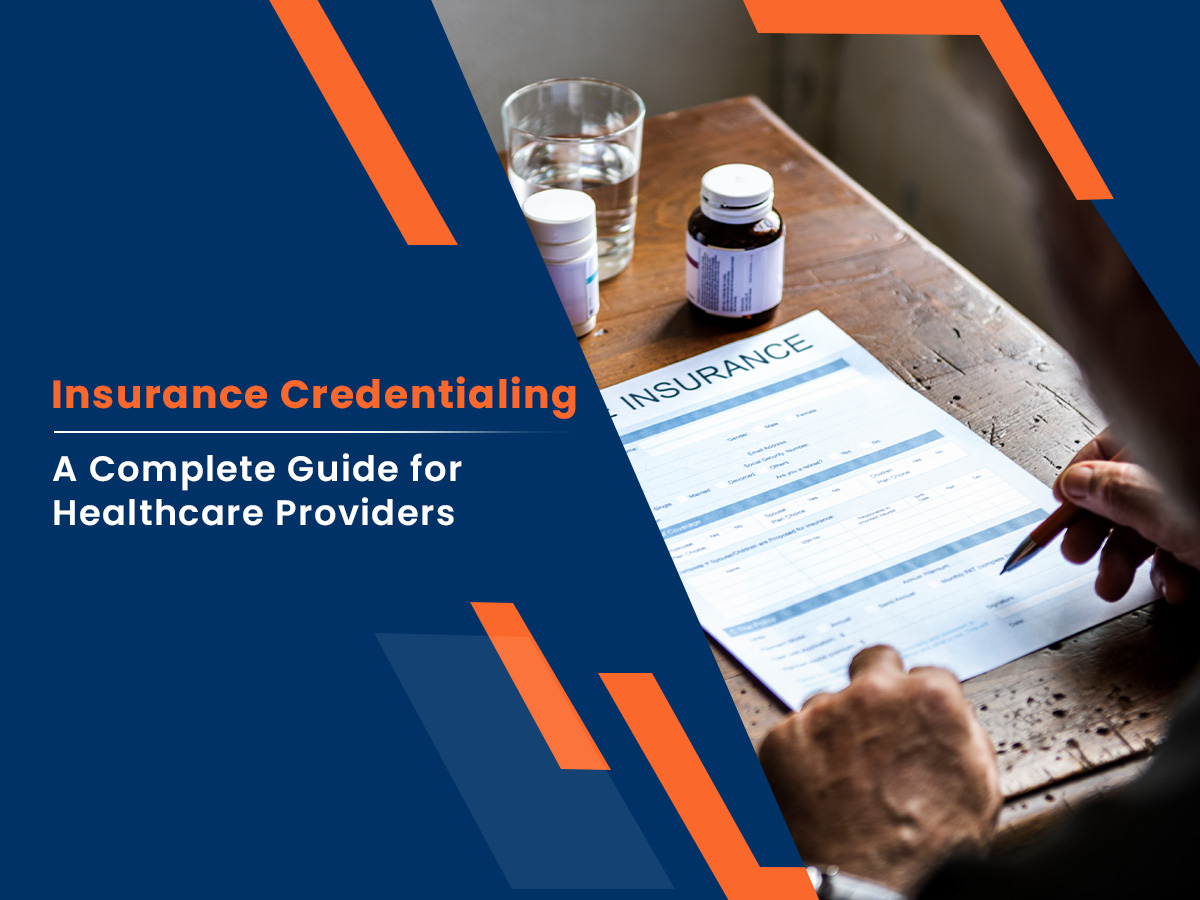When healthcare providers aim to offer medical services, it’s essential that they meet the necessary standards to ensure quality and safety for patients. This is where credentialing companies step in, playing a crucial role in verifying that healthcare professionals, including doctors, nurses, and medical assistants, have the credentials and qualifications required to provide care. Here, we’ll break down the role of credentialing companies and how they support healthcare providers in gaining the trust of insurance payers, hospitals, and patients alike.
Understanding Credentialing in Healthcare
Credentialing is a process that involves verifying the professional qualifications of healthcare providers. This includes checking educational background, training, licensure, and any certifications that professionals like medical assistants need to practice. Credentialing companies help ensure that healthcare providers meet the required standards, making it easier for them to work with insurance companies and care facilities.
The credentialing process benefits both providers and patients. Providers gain credibility, making it easier to attract more patients and secure contracts with insurance payers. Patients, on the other hand, receive care from professionals whose skills and qualifications have been verified, creating trust in the healthcare system as a whole.
What Credentialing Companies Do for Providers
Credentialing companies streamline the complex credentialing process for healthcare providers. Here’s a look at their main functions:
1. Document Verification
One of the primary roles of credentialing companies is to verify the documents submitted by healthcare providers. They check diplomas, degrees, and certifications to ensure that all qualifications are genuine. This step is crucial for all healthcare providers, including medical assistants, as it confirms their credentials.
2. Background Checks
Credentialing companies conduct background checks to ensure that providers have a clean professional record. These checks help verify that the provider hasn’t faced any disciplinary actions, sanctions, or criminal charges that could impact their ability to deliver quality care. A clean background is essential for building trust with insurance companies and patients.
3. Licensure Verification
Each healthcare professional, whether they are a doctor, nurse, or medical assistant, must hold a valid license to practice in their field. Credentialing companies confirm that the license is current and valid, ensuring that providers comply with all legal requirements. This is particularly critical for medical assistants, whose role often involves handling patient records and assisting with clinical procedures.
4. Provider Enrollment
After credentialing, healthcare providers must go through the enrollment process to become eligible for reimbursement from insurance companies. Credentialing companies help manage this paperwork, ensuring providers can work smoothly with insurers. Provider enrollment is a significant part of the process, as it allows providers to receive payment for their services, creating financial security for their practice.
5. Continuous Monitoring
Credentialing is not a one-time process. Credentialing companies continuously monitor healthcare providers’ credentials to make sure they remain compliant with industry regulations. They check for license renewals, new certifications, and any changes in the provider’s professional standing. This is particularly important for medical assistants who are in direct contact with patients, as ongoing monitoring helps maintain a high level of patient care.
How Credentialing Impacts Medical Assistants
Medical assistants play a vital role in healthcare settings. They handle administrative duties, assist in clinical tasks, and often serve as the first point of contact for patients. Credentialing companies ensure that medical assistants are qualified and competent in their roles, which in turn enhances the efficiency and safety of healthcare delivery. Here’s how credentialing companies support medical assistants:
- Qualification Verification: Credentialing companies verify that medical assistants have completed accredited training programs and possess any required certifications. This ensures that they can safely assist in clinical procedures.
- Work Eligibility: Credentialing companies help medical assistants gain access to employment in reputable healthcare facilities, allowing them to practice their skills with confidence.
- Compliance with State Regulations: Each state has specific requirements for medical assistants. Credentialing companies ensure compliance with these regulations, ensuring that medical assistants are authorized to perform tasks relevant to their training.
By going through the credentialing process, medical assistants can focus on their work, knowing that their qualifications are in order, and they are fully authorized to assist in patient care. This peace of mind allows them to contribute more effectively to their teams and ultimately benefits patients by ensuring a reliable standard of care.
Why Credentialing Is Important for Healthcare Providers
The credentialing process provides healthcare providers with a range of benefits that positively impact their practice. Here’s how credentialing companies add value for providers:
- Increased Patient Trust: Credentialing assures patients that their provider is qualified and competent, fostering trust and encouraging long-term relationships.
- Simplified Insurance Reimbursement: Providers who are credentialed and enrolled with insurance companies can receive reimbursements faster and with fewer complications.
- Legal Compliance: Credentialing companies help healthcare providers comply with state and federal regulations, protecting them from potential legal issues.
- Enhanced Professional Reputation: Being credentialed enhances a provider’s reputation, making it easier to attract new patients and maintain partnerships with healthcare facilities.
The Role of Credentialing Companies in Simplifying the Process
For many providers, credentialing can be a time-consuming and complex task. Credentialing companies alleviate this burden, allowing providers to focus on their patients instead of paperwork. From gathering documents to submitting applications, credentialing companies handle all the intricacies involved, ensuring that providers stay on track with renewals and avoid disruptions in their ability to offer care.
Credentialing and Outsourced Healthcare Management
Outsourcing credentialing and other healthcare management tasks has become increasingly popular among healthcare providers. Credentialing companies, along with other healthcare management firms, offer services that extend beyond credentialing. They often assist with member enrollment, medical billing, coding, claims administration, and provider engagement.
For example, some providers choose to work with specialized companies that handle both credentialing and billing. By outsourcing these administrative tasks, healthcare providers can focus on patient care without worrying about the complexities of managing paperwork. Medical assistants, for instance, benefit from these outsourced services as it allows them to dedicate more time to clinical and patient-facing duties.
Apaana Healthcare: A Trusted Partner for Credentialing and More
When it comes to choosing the right credentialing partner, it’s essential to find a company that understands the specific needs of healthcare providers, including the critical role played by medical assistants. Apaana Healthcare is committed to driving operational excellence across the healthcare industry. We specialize in providing outsourced services that go beyond credentialing, covering essential areas such as member enrollment, claims administration, medical billing and coding, and provider engagement.
With Apaana Healthcare, providers gain a trusted partner dedicated to cost-effective solutions that enhance the efficiency and reliability of their operations. Our global healthcare management solutions ensure that healthcare professionals, from doctors to medical assistants, can focus on delivering quality care without administrative distractions. If you’re looking for a company that values professionalism, compliance, and efficiency, Apaana Healthcare is here to support you every step of the way.
In conclusion, credentialing companies are a valuable resource for healthcare providers, ensuring compliance, building trust, and enabling providers to focus on their core mission: patient care. And with Apaana Healthcare by your side, you can be confident in the operational support that keeps your practice running smoothly and effectively.





